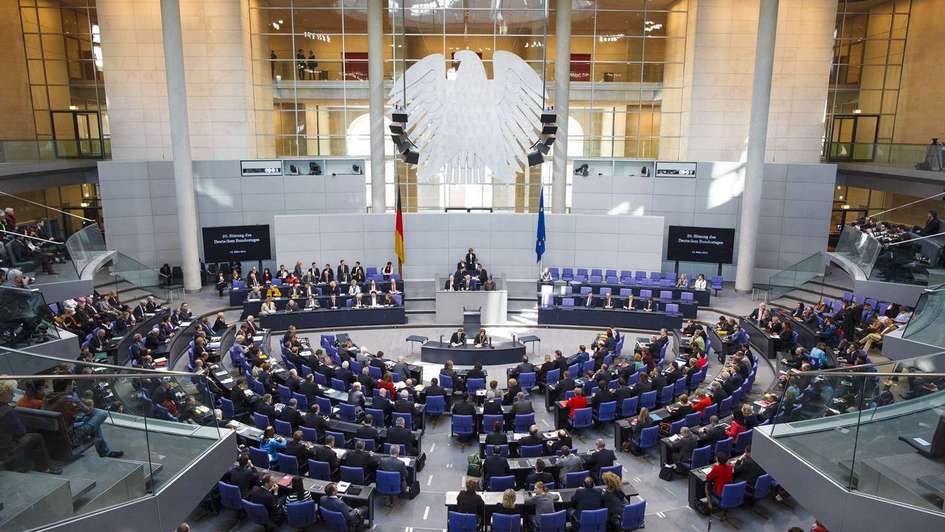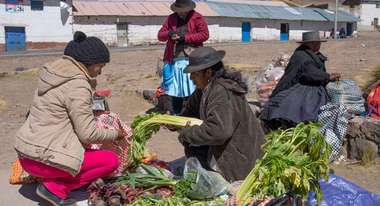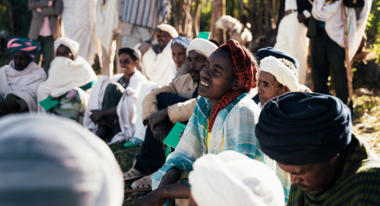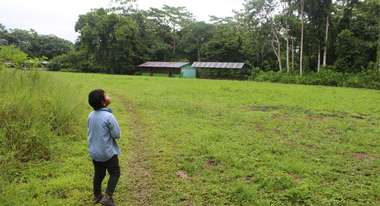The Poorest Shortchanged yet Again
The "Compass 2030" is a critical analysis of German development policy and extrapolates political recommendations.

The 25th report on the “Reality of German Development Policy,” published by terre des hommes and Welthungerhilfe, conducts a critical analysis of German development policy and extrapolates political recommendations. The bottom line is: Clear signals and decisive action are demanded of the new federal government.
Germany as Second-Place Donor – a Sham?
In 2016, Germany spent 0.7% of its gross national product on development cooperation for the first time, making it the second largest donor amongst the DAC countries. However, this result is distorted. Domestic expenses providing for refugees comprise a quarter of Germany’s ODA contribution. In “real” terms, funds only rose by a fifth to 0.52%.
The poorest countries (LDC – Least Developed Countries) continue to be at a disadvantage: They only receive roughly a seventh of Germany’s total ODA. According to the latest available figures, contributions fell to their lowest standings since 2009 with EUR 2.34 billion in 2015. The main recipients of German contributions are emerging economies such as China and India, while only one country from Africa South of the Sahara is included: South Africa.
Welthungerhilfe and terre des hommes therefore challenge the new federal government: By 2020, 0.7% of the GDP must go to development cooperation – without counting domestic refugee expenses. In addition, the quality of development cooperation must also be improved. Timely and sustainable development policy must be aligned with the Agenda 2030.
Four Sectors in Focus – our Recommendations for Action
This year, Compass 2030 addresses four areas of activity in which the federal government should adjust its course:
Overcoming Poverty
Economic growth alone cannot end poverty. Fighting poverty must be prioritised and social security systems must be established. More money must be provided for poor countries and vulnerable groups.Ending Hunger
For the first time since 2002, the number of hungering people is rising again. Humanitarian assistance, peacebuilding and development cooperation need to be better interconnected. 25% of the budget of the Federal Ministry of Economic Cooperation and Development (BMZ) should be reserved for food and nutrition security and rural development.Flight and Migration
Development cooperation should not serve to repel migrants but rather to facilitate political and social participation. Migration accords may only be made on the basis of human rights standards.Reinforcing Children’s Rights
Children should be the priority of development cooperation. No small arms and armaments should be sent to countries that violate children’s rights.
These tasks are also connected by a focus on the role and situation of civil society.
Strengthening Civil Society – the new Federal Government must Become Active
The sphere of action for civil society organisations is constricting throughout the world. Laws and regulations have been passed to make their work difficult, if not impossible, and this not only in autocratic systems. In both industrial and developing countries, legal and administrative obstacles are being erected, from making registration and financing more difficult to prohibiting issues of politics and human rights from being addressed.
In order to protect and reclaim the sphere of action of civil society, we are urging the new federal government:
Dialogue with domestic NGO representatives must be sought and the entire width of restrictions recorded. This should be reflected in an annual report with concrete action and policy options.
Civil society must be energetically and visibly defended and allowed to participate as much as possible, be it in political dialogue, in negotiations or in international forums such as the EU and UN.
The unbureaucratic expansion of alliances of German NGOs with their partners in the global south must be promoted.
Collaboration with NGOs must be structured strategically, within the framework of the Agenda 2030 – and within a separate budget item!







